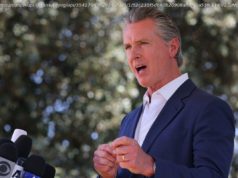Trump’s accusatory tweet came amid rising tensions between Beijing and Washington over trade as well as Taiwan and the South China Sea
US President Donald Trump said on Monday that China may be “exerting negative pressure” on North Korea, which this weekend criticised Washington’s demands for denuclearisation, because of the trade war he launched against China last week.
Trump’s accusation came two days after North Korea called negotiations with US Secretary of State Mike Pompeo last week in Pyongyang “deeply regrettable”, with Washington pushing a “unilateral and gangster-like demand for denuclearisation”.
It also came as tensions have markedly escalated between Beijing and Washington over trade and a long list of security and political issues, including Taiwan and the South China Sea.
“I have confidence that Kim Jong Un will honor the contract we signed,” Trump said in a tweet on Monday morning, referring to the North Korean leader and their vaguely worded four-point joint agreement reached at a summit meeting last month in Singapore.
While Kim agreed to work toward denuclearisation of the Korean peninsula, which was largely in line with Pyongyang’s stance since 1990s, Trump apparently had a different understanding of what was achieved at the first meeting between North Korea and a sitting US president.
“We agreed to the denuclearisation of North Korea,” he said in the tweet.
Unlike Pompeo, who dismissed North Korea’s criticism and reiterated the importance of “maintaining maximum pressure” of sanctions against Pyongyang, Trump said China, North Korea’s biggest diplomatic and economic supporting, could be influencing Kim.
“China, on the other hand, may be exerting negative pressure on a deal because of our posture on Chinese Trade-Hope Not!” said Trump in the tweet.
It was not the first time Trump has lashed out at Beijing over his frustrations about the lack of progress in denuclearisation talks with Kim.
Just a few weeks before the Singapore summit, Trump said Chinese President Xi Jinping “could be influencing” Kim from behind the scenes shortly after Kim went to Dalian, China, for his second meeting with Xi.
US Senator Lindsey Graham said on Sunday: “I see China’s hands all over this. We’re in a fight with China.” Graham, a Republican, was referring to Trump’s decision to impose tariffs on US$34 billion worth of Chinese products effective on Friday.
Beijing lambasted Washington for having launched “the biggest trade war in economic history so far” and vowed to retaliate by taxing pork, soybeans and automobiles, among other products.
Graham, a Senate Armed Services Committee member, said on “Fox News Sunday”: “If I were President Trump, I would not let China use North Korea to back me off of the trade dispute. We’ve got more bullets than they do when it comes to trade.”
At a press briefing on Friday in Beijing, Chinese Foreign Ministry spokeswoman Hua Chunying dismissed criticism from Washington about China’s possible influence over Pyongyang in the nuclear talks.
“It made absolutely no sense to link China’s role on the peninsula issue and the discrepancies of public statements between North Korea and the US” after Pompeo’s trip to Pyongyang, she said.
Instead, Hua and Liu Jieyi, Beijing’s top Taiwan affairs official, hit out at the US for playing the “Taiwan card” amid heightened tensions over trade, a day after two US warships passed through the Taiwan Strait.
Pundits said Trump’s latest outburst was worrying as it could play into the hands of Kim, who has pitted Washington against Beijing and even its own allies over the years with his nuclear brinkmanship.
“President Trump is clearly telegraphing to the North Koreans that there’s distance between China and the United States… and the North Koreans are going to use that to their advantage,” said Joel Wit, a senior fellow at the Stimson Centre, a Washington-based think tank, and founder of 38 North, a website focused on North Korea issues.
“They’re going to constantly play off the US against China, and that doesn’t strengthen our position, it weakens our position with North Korea,” Wit said.
“The media narrative which I really disagree with is that the Singapore summit declaration deemed that North Korea would stop everything it was doing [regarding nuclear weapons development] right away. It did not mean that, nor would I find that to be a reasonable expectation.
“Flying into Pyongyang, having two days of meetings and having some staff-level working group is not going to cut it.”
Robert Gallucci, formerly a US ambassador-at-large and chief US negotiator with North Korea in 1994, agreed that expectations for peace after the Singapore summit were overblown.
“It’s unfortunate when the president does his version of ‘mission accomplished’, and says ‘we don’t have a threat from [North Korea] anymore, you can sleep tonight’,” said Gallucci, who is now a distinguished professor in the practice of diplomacy at Georgetown University.
“That’s flat-out misleading, and it leads to expectations which anybody who’s serious about this process would say you shouldn’t have these expectations.
“This is a process, and in a process preparation matters. And we have not had the careful preparations that ongoing negotiations and sustained engagement would produce.”






